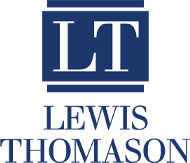David Chapman did a presentation at the 2020 EDR Summit in Houston with James Norris at Parham Engineering during which they did a mock deposition of an accident reconstruction expert citing common misconceptions about EDR data. They hired a court reporter, and Crash Data Group is publishing the transcript in an article for Collision magazine which will be published in the May/June 2021 issue. A preview of the article is below.
Legal Challenges Regarding EDR Data in Testimony
James Norris, P.E.; Parham Engineering Consultants, Inc and David A. Chapman, Esq., Lewis Thomason, P.C. As part of the 2020 EDR Summit in Houston, Texas, accident reconstruction expert James Norris and I conducted a mock deposition in which we presented a series of attorney questions and witness responses based on several different scenarios involving EDR data. The transcript of the mock deposition forms the basis for this article. Unlike physicians, accident reconstruction experts are not immune from subpoenas requiring live testimony at trial in most states. This means that in most circumstances, the expert will testify in a “discovery” deposition before he or she takes the witness stand at trial. A discovery deposition is so named because, in theory, it is the opportunity for attorneys for the other parties in a case to “discover” the opinions held by the expert. Discovery depositions are therefore designed to simply prevent a party from being “ambushed” at trial with the previously undisclosed or unexplored opinions of an expert. In practice, however, the discovery deposition of an expert is more often used by an opposing attorney to “test” the expert and to experiment with different types of examination questions to see which ones may prove most effective at trial. Thus, if an attorney discovers that the expert handles questions regarding certain issues effectively, it is unlikely that he or she will give the expert the opportunity to duplicate that success in front of a judge or jury “when it counts.”






